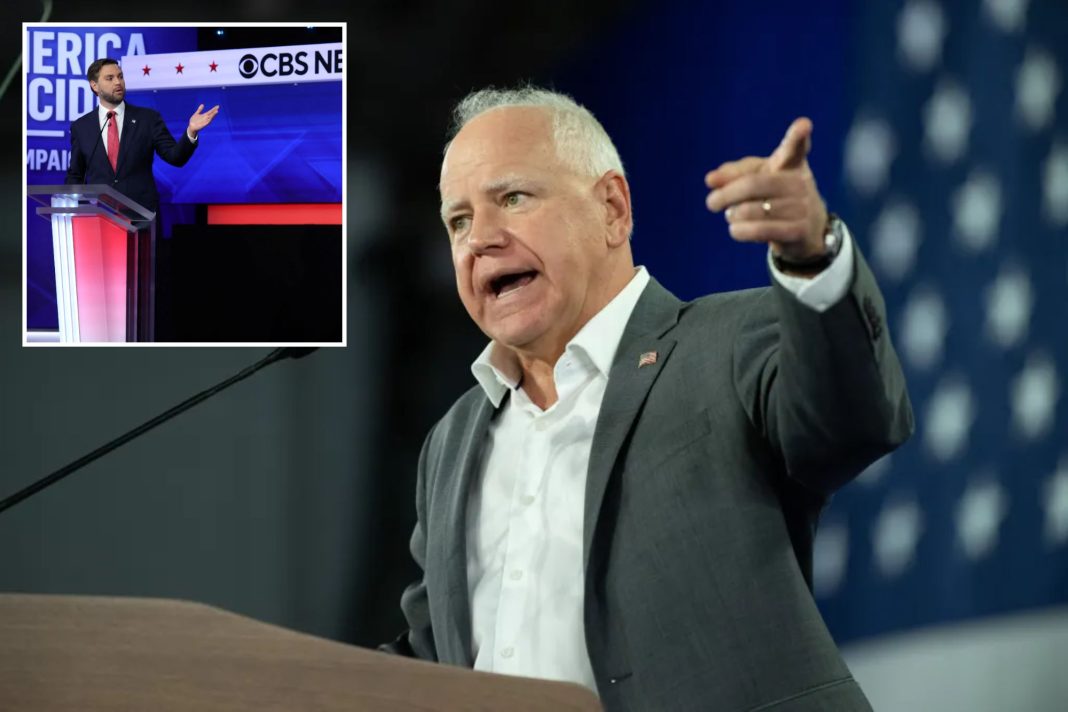In a whirlwind of political discourse, Minnesota’s Governor Tim Walz has recently found himself in the hot seat as he vies for the vice presidential position on the Democratic ticket. With the 2024 election looming, Walz has been candid about his propensity for “misspeaking,” a term he employs to describe various false statements that have come under scrutiny. But does this acknowledgment resonate with voters, or does it raise more questions than it answers?
Walz’s admission of inaccuracies dates back to his claims of being in Hong Kong during the Tiananmen Square massacre—a statement that has drawn considerable skepticism. In his defense, Walz points to his passion as a factor that leads him to stumble over words. “I think they heard me the other night speaking passionately about gun violence and misspeaking,” he explained during a recent interview, referencing a particularly awkward moment from the VP debate where he mistakenly said, “I’ve become friends with school shooters.” This kind of slip may seem trivial, but in the high-stakes arena of political campaigning, such misstatements can stick like glue.
The governor also faced questions regarding his family’s reproductive choices. For years, he and his wife Gwen had asserted that they conceived their two children through in vitro fertilization (IVF). However, Gwen recently clarified that they actually used intrauterine insemination (IUI). Walz downplayed the discrepancy, suggesting that voters are more concerned about the implications of reproductive rights rather than the specifics of their family’s journey. “I don’t think people care whether I used IUI or IVF when we talk about this,” he stated, pivoting to criticize former President Trump’s stance on reproductive health.
This narrative raises a broader question about the fine line politicians must walk between transparency and obfuscation. In a time when misinformation is rampant, candidates are often judged not just by their policies but by the authenticity of their narratives. A recent study by the Pew Research Center indicated that 62% of Americans view honesty as a critical trait in their leaders. As such, Walz’s admission could be seen as a double-edged sword; while it may humanize him, it also risks alienating voters who seek certainty and clarity.
During the same interview, Walz made a strong case regarding Minnesota’s abortion laws, particularly in light of recent tragedies linked to complications from abortion pills. He argued that the changes he signed into law were in line with ethical medical practices, stating, “Minnesota law aligns with every other case of what physicians are required by their ethical responsibilities.” This assertion comes against the backdrop of ongoing national discourse about reproductive rights, especially following the overturning of Roe v. Wade.
In a pointed exchange with host Shannon Bream, Walz referenced a tragic case involving a Georgia woman who died after complications from abortion medication, underscoring the real-world implications of restrictive abortion policies. Such examples serve to highlight the stark differences between Democratic and Republican approaches to healthcare and women’s rights, an issue that is expected to play a significant role in the upcoming election.
As Walz navigates the complexities of his candidacy, one thing is clear: the Harris-Walz campaign is ramping up its media presence. Critics have previously noted the duo’s relatively low visibility in the media since joining the presidential ticket. However, with appearances planned on high-profile platforms like late-night talk shows and daytime programs, they aim to bolster their public image and reach a wider audience.
In conclusion, as Tim Walz continues to confront the challenges of his campaign, he must balance his candidness about past misstatements with the need to present a cohesive and credible narrative. Voters today are not just looking for a candidate who can articulate policy; they seek authenticity and accountability. As the election draws near, the question remains: can Walz successfully navigate this tumultuous political landscape while maintaining the trust of the electorate? Only time will tell.

